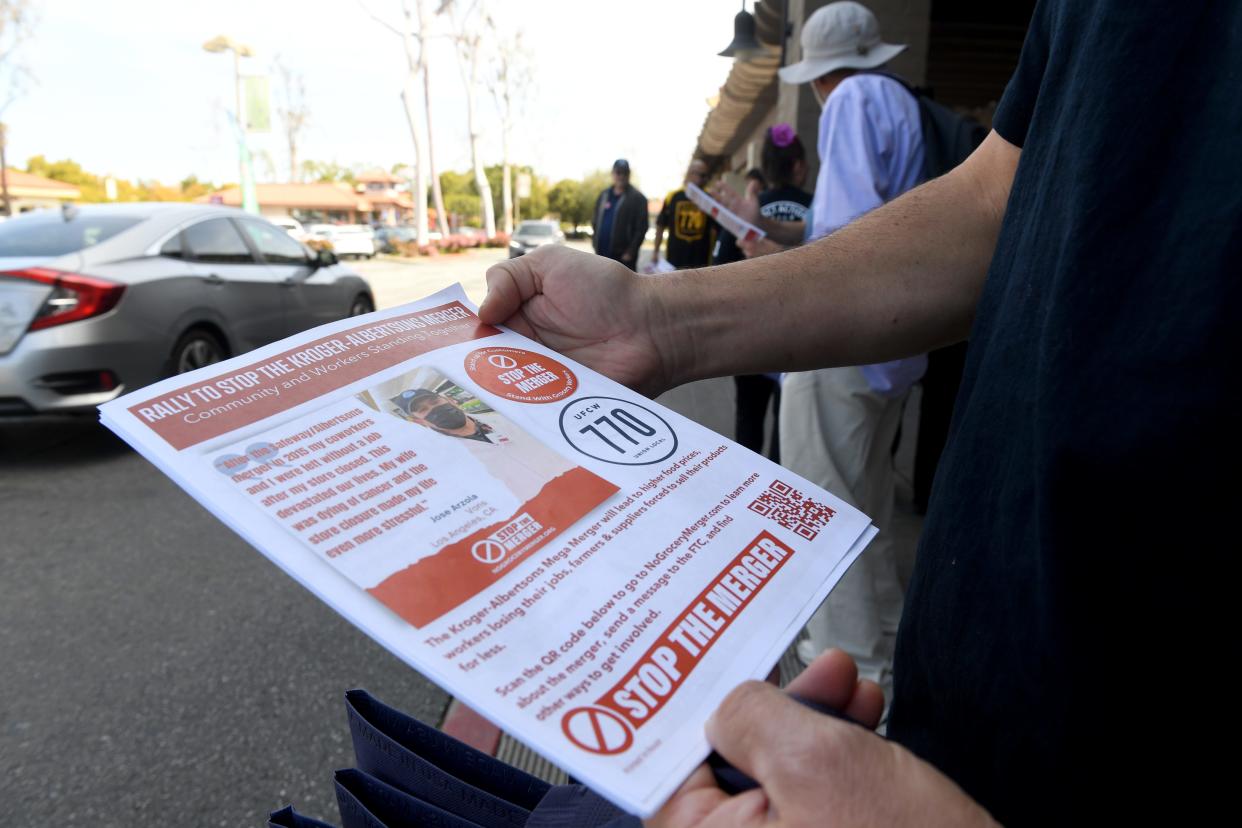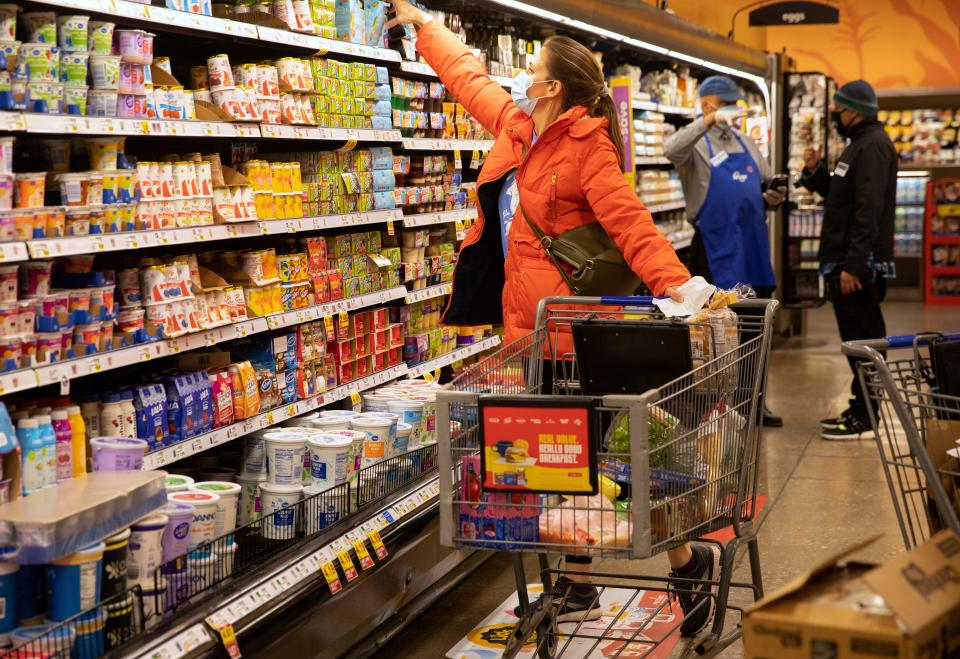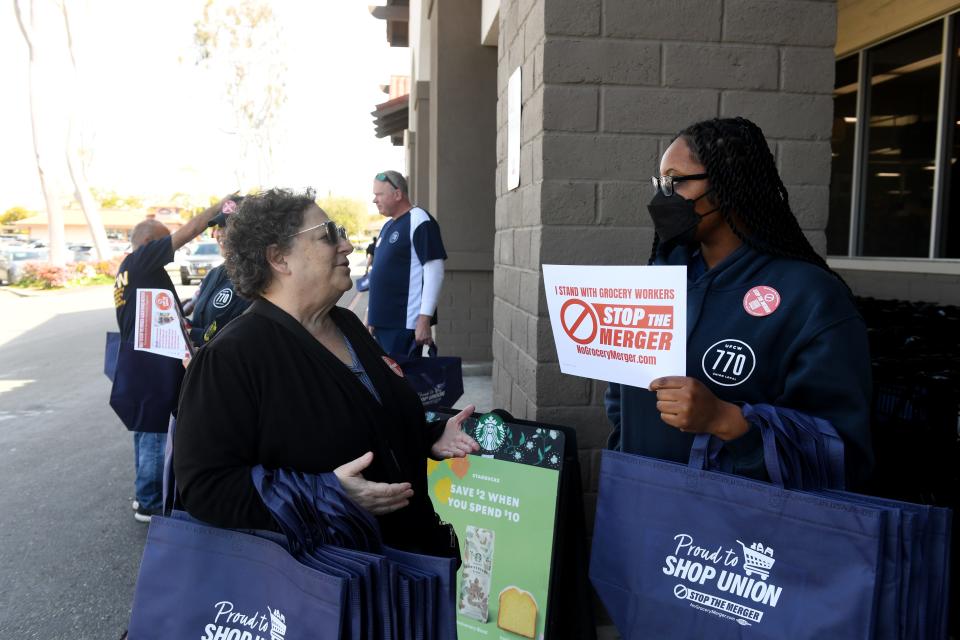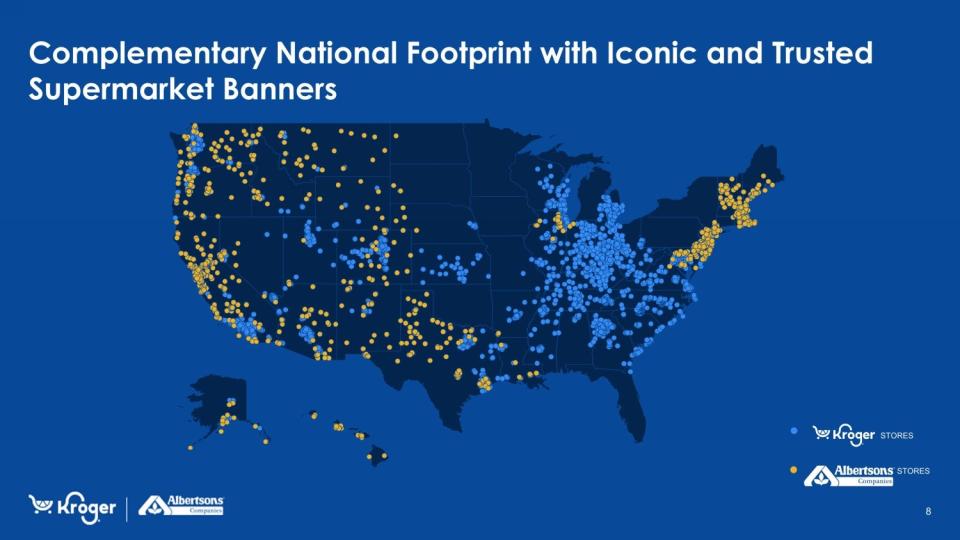FTC must block anticompetitive Kroger-Albertsons deal | Opinion

My organization, American Economic Liberties Project, recently hosted an event featuring speakers directly impacted by U.S. merger policy. Grace Garcia, a grocery store worker from United Food and Commercial Workers (UFCW) Local 770, recounted the shame of moving in with family after being laid off following the Albertsons and Safeway merger federal enforcers approved in 2015. Now, our Ohio-based Kroger is proposing to buy Albertsons for $22 billion.
Together, Kroger-Albertsons would create regional grocery behemoths, controlling 70% or more of the market in 167 cities. Independent businesses and producers in these markets would see reduced bargaining power. Previously, Kroger’s CEO Rodney McMullen has stated that "a little bit of inflation is always good in our business," referring to the pricing strategy of using inflation as a cover to increase prices well past cost over the past two years, resulting in the highest food price increases since the 1980s. More market dominance would provide even greater opportunity to extort consumers.

The merged retailer also would employ more than 700,000 workers, many of whom are already underpaid and struggle to meet their basic needs. The merger would likely come with job losses and give Kroger-Albertsons the power to close unionized stores. These potential impacts are surely a reason why UFCW International Union has taken the significant step of publicly opposing the merger. Recently, seven secretaries of state from across the country also joined in asking the FTC to oppose this merger.
The Federal Trade Commission should block this deal. It would create the country’s third-largest grocery retailer, further consolidate a highly concentrated and anticompetitive sector that is raising food prices, harming workers, and shuttering independent grocers.
It wasn’t always like this. The number of grocery stores in the United States has declined nearly 30% since the 1990s. Up until that time, most people shopped at regional or local supermarkets. Today, over 75% of customers buy groceries from Walmart. In fact, over 60% of grocery sales are concentrated in just five national chains − Amazon, Walmart, Kroger, Albertsons, and Ahold Delhaize.

The result of this consolidation has been disastrous for small businesses, both independent grocers and food producers, workers, and consumers. Big retailers and chains use their bargaining power to negotiate better prices than their competitors, giving them an unfair advantage over independent grocers, virtually eliminating their ability to profit. Farmers also struggle to negotiate higher prices for their crops and livestock. Combining Kroger and Albertsons would only exacerbate these harms, particularly in working-class and minority communities throughout Ohio.
The Federal Trade Commission and Department of Justice (which share authority for merger enforcement) have taken stock of these problems in the American economy, and they recently released draft merger guidelines that update the agency’s thinking on how they will identify anticompetitive mergers. The agencies identify that mergers should not increase concentration in an already concentrated market or further a trend towards consolidation. Though these guidelines are still just in draft form, the merger of Kroger and Albertsons directly fit the bill of being anticompetitive based on these themes.

Nonetheless, a column published in the Enquirer on Aug. 11 advanced a common argument to justify approving the Kroger-Albertsons deal: In a world of giants like Amazon and Walmart, we need even more giants to compete and create efficiencies. This argument, coming from a big business-funded think tank, was rejected by Congress over a hundred years ago when they passed our antitrust laws during a similar period of big business domination. Research and our history proves that a diverse ecosystem of differently-sized retailers competing against each other is best for workers, consumers, small businesses, and the economy overall.
The FTC must follow congressional intent and reject this merger to put a stop to the hyper-consolidation of the retail grocery sector. The past 40 years have shown us the dangers of approving yet another merger. We risk losing more independent farmers and retailers, as well as purchasing power as consumers and wages as workers. The FTC has the legal authority to change course, and they should embrace this authority to restore competition to this vital market impacting almost every single American.
Morgan Harper lives in Columbus, Ohio and is the Director of Policy and Advocacy at the American Economic Liberties Project.

This article originally appeared on Cincinnati Enquirer: FTC must block anticompetitive Kroger-Albertsons deal | Opinion

